Space
Sign up for our newsletter
We summarize the week's scientific breakthroughs every Thursday.
-
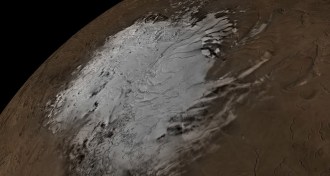 Planetary Science
Planetary ScienceMars (probably) has a lake of liquid water
A 15-year-old Mars orbiter has spotted signs of a salty lake beneath the Red Planet’s south polar ice sheets.
-
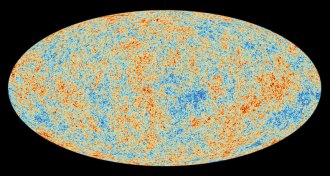 Physics
PhysicsThe Planck satellite’s picture of the infant universe gets its last tweaks
Scientists have released the last big result from the cosmic microwave background experiment Planck.
-
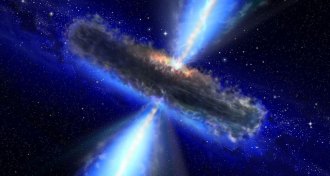 Particle Physics
Particle PhysicsOne particle’s trek suggests that ‘spacetime foam’ doesn’t slow neutrinos
Neutrinos and light travel at essentially the same speed, as predicted.
-
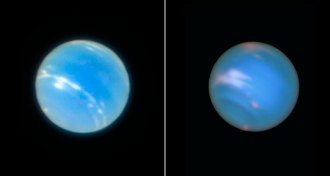 Astronomy
AstronomyMove over, Hubble. This sharp pic of Neptune was taken from Earth
A new strategy at the Very Large Telescope lets astronomers take space telescope–quality pictures from the ground.
-
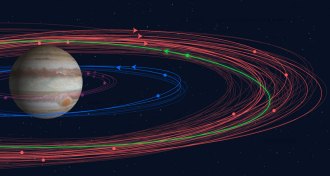 Planetary Science
Planetary ScienceJupiter has 12 more moons than we knew about — and one is bizarre
Astronomers found a dozen previously unknown moons of Jupiter, and one may be a remnant of a larger moon that was all but ground to dust.
-
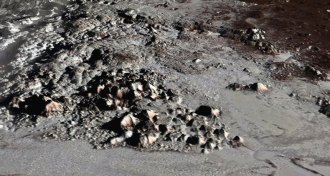 Planetary Science
Planetary ScienceFirst global maps of Pluto and Charon show the worlds’ highs and lows
New charts of Pluto and its moon Charon, compiled using New Horizons’ data, reveal high peaks, deep depressions and strange ridges.
-
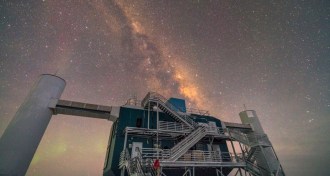 Particle Physics
Particle Physics50 years ago, neutrinos ghosted scientists
In the last half-century, neutrino detectors have spotted particles cast out by the sun, supernova 1987A and a supermassive black hole.
-
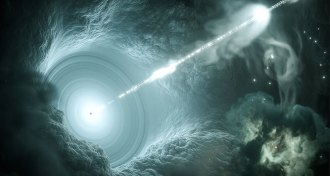 Particle Physics
Particle PhysicsA high-energy neutrino has been traced to its galactic birthplace
The high-energy particle was born in a blazar 4 billion light-years away, scientists report.
-
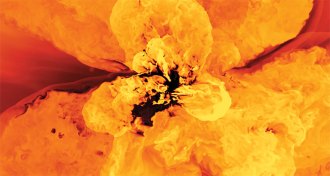 Astronomy
AstronomyThe ecosystem that controls a galaxy’s future is coming into focus
An invisible cloak called the circumgalactic medium controls a galaxy’s life and death.
-
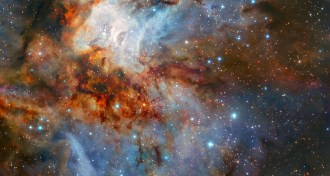 Astronomy
AstronomySee this star nursery shine in a stunning new infrared image
A newly released image of star cluster RCW 38 shows the intricate details of wisps of gas and dust surrounding newborn stars.
-
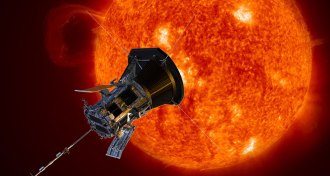 Astronomy
AstronomyNASA’s Parker probe is about to get up close and personal with the sun
The Parker Solar Probe is about to make a historic voyage to touch the sun.
-
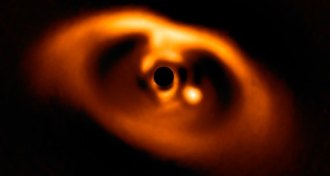 Astronomy
AstronomyAstronomers snap the first baby pictures of a planet
New telescope images give the clearest view of an exoplanet embryo yet.